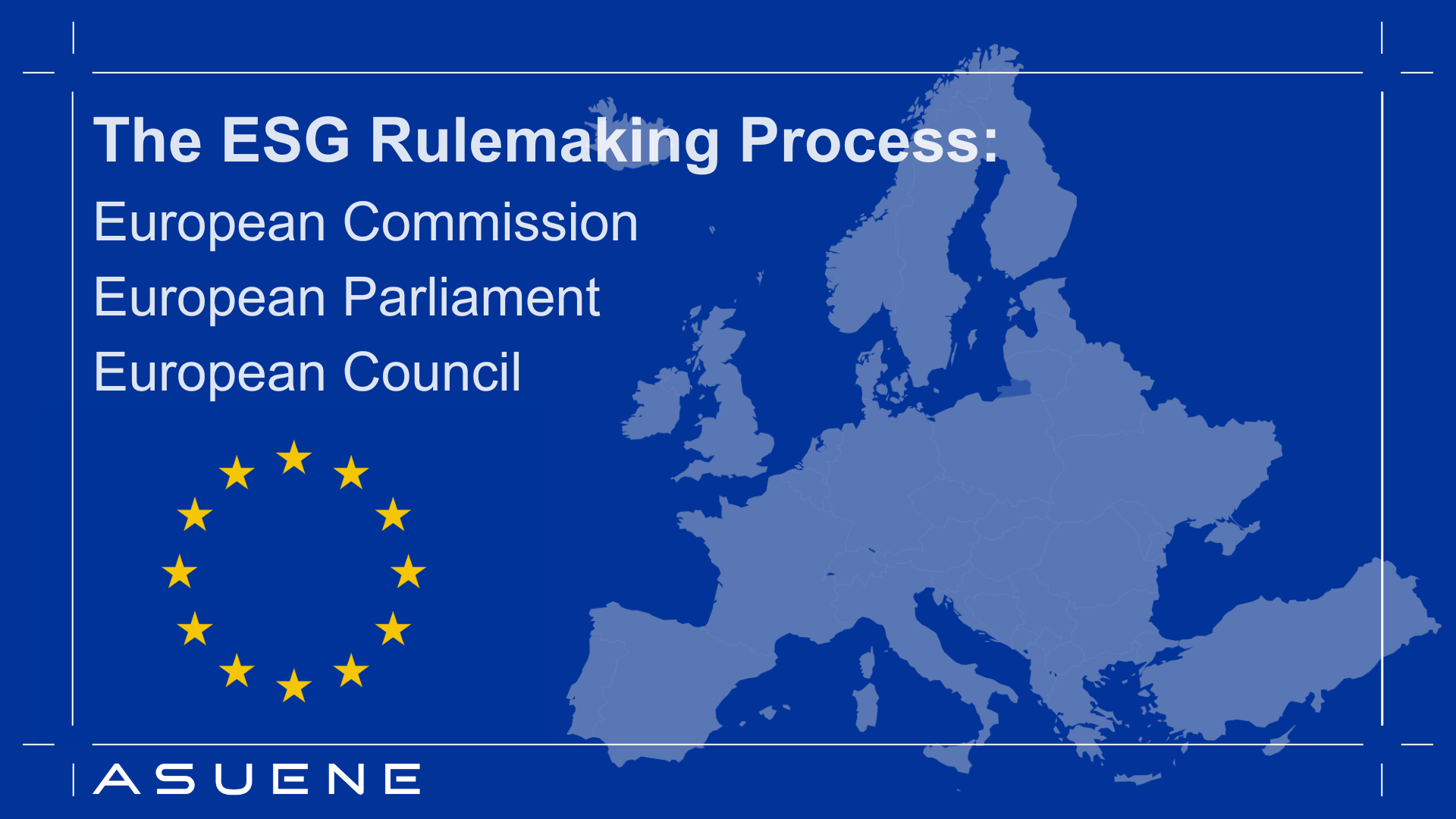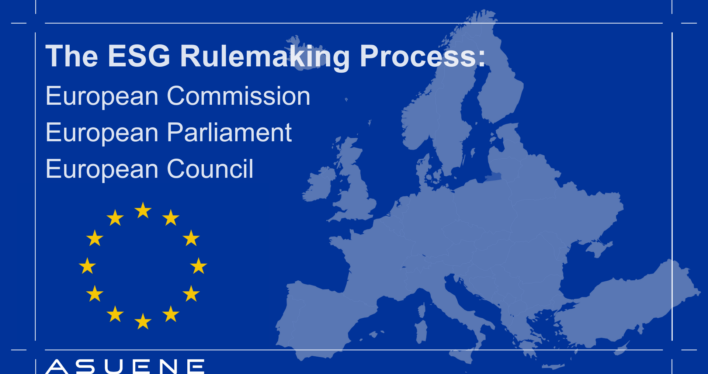- Article Summary
-

The European Union’s ESG rulemaking process is a intricate system involving multiple institutions and stakeholders. This blog post will explore the key players and their roles in shaping ESG regulations, such as the Corporate Sustainability Reporting Directive (CSRD).
Key Players and Their Roles
European Commission (EC)
- Initiates and proposes new legislation
- Develops policy proposals and draft regulations
- Adopts delegated acts, such as the European Sustainability Reporting Standards (ESRS)
European Parliament
- Debates and amends proposed regulations
- Works with the Council to reach agreement on final legislation
- Often advocates for raising environmental standards
Council of the European Union
- Represents member states’ governments
- Examines proposals in working groups and committees
- Negotiates with the Parliament to reach final agreements
European Financial Reporting Advisory Group (EFRAG)
- Develops draft sustainability reporting standards (ESRS)
- Provides technical advice on EU financial reporting standards
European Supervisory Authorities (ESAs)
- Composed of three agencies: EBA, EIOPA, and ESMA
- Prepares draft regulatory technical standards
The Rulemaking Process
- The EC proposes new legislation or regulations.
- The European Parliament and Council debate and potentially amend the proposal.
- Once an agreement is reached, the final regulation is adopted.
- For technical standards, EFRAG or ESAs develop draft standards.
- The EC adopts the standards as delegated acts.
- The European Parliament and Council have the opportunity to object within a specified timeframe.
- If no objections are raised, the regulation is published in the Official Journal and enters into force.
Visualization of the Process
Here’s a simplified table showing the relationship between the key players:
| Institution | Primary Role | Interacts With |
| European Commission | Initiates legislation | Parliament, Council, EFRAG, ESAs |
| European Parliament | Debates and amends | Commission, Council |
| Council of the EU | Represents member states | Commission, Parliament |
| EFRAG | Develops technical standards | Commission |
| ESAs | Prepares regulatory standards | Commission |
This complex process ensures that ESG regulations in the EU are thoroughly vetted and reflect the interests of various stakeholders. The interplay between these institutions helps create robust and comprehensive ESG rules that shape the sustainability landscape across Europe and beyond.
